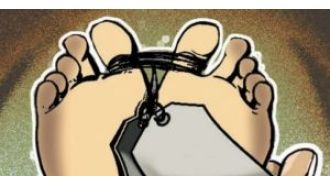Some experts are worried about the effects of Trump's economic policies on small businesses and black-owned companies.
Recent reports show that small businesses, particularly those owned by Black individuals, may face challenges due to Trump's economic policies, hindering their potential for growth.

Shaquana Teasley, also known as "Shaq," is all too familiar with the negative impact of the economic agenda implemented by the Trump administration. As the founder and CEO of Agate Solutions, a company based in Atlanta that specializes in international trade and U.S. Customs regulation, Teasley has seen a decrease in revenue and had to lay off staff since President Trump shut down the U.S. Agency for International Development (USAID), one of her largest clients. USAID, a global provider of humanitarian aid, managed over $40 billion and provided assistance to about 130 countries.
"It's truly unfortunate to see the end of USAID," Teasley shared with BLACK ENTERPRISE. "However, thanks to our expertise in tariff recovery, our business is still thriving as we help Black businesses increase their profit margins."
Teasley, an expert in international trade, believes that Black businesses should now focus on taking advantage of tariff optimization programs. She explains that there are regulations in place to support duty deferral tariff engineering and manufacturing strategies, which could greatly benefit Black firms that qualify for these programs.
With over 20 years of experience in the industry, Teasley proudly shares that she successfully led initiatives for the world's largest defense contractor to recover $30 million in tariffs during the Chinese Trade War under the first Trump administration. However, the potential financial repercussions of Trump's actions and policies are concerning for small businesses across the nation, including Black entrepreneurs.
Recently, three new reports have surfaced, revealing the possible dire impacts on small businesses. According to Creative Investment Research, the cancellation of 104 diversity, equity, and inclusion contracts by the Department of Government Efficiency, along with higher levels of discrimination in general, could result in annual economic revenue losses of $1.6 trillion to $2.6 trillion. William Michael Cunningham, an economist and CEO of Creative Investment Research, explains that this estimate far exceeds the announced $1 billion in "savings" by the DOGE, which is led by Elon Musk, the billionaire Trump appointed to help reduce federal spending.
Cunningham's research also shows that reduced government spending will have negative effects on various areas, such as employment, housing, business lending, and healthcare. For example, it is estimated that minority entrepreneurs may struggle to obtain future federal contracts and access to capital, resulting in an annual economic growth limitation of $500 billion to $800 billion.
"Moving away from inclusive economic policies and programs will ultimately reduce our country's gross domestic product (GDP), especially in a diverse nation like the United States," Cunningham states.
However, Dr. Kenneth Harris, president and CEO of the National Business League (NBL), disagrees with this perspective. In an email, Harris argues that the damage caused by the loss of DEI programs to Black businesses is exaggerated and lacks real data. The NBL, founded in 1900 by Booker T. Washington, identifies itself as America's oldest and largest national trade group for Black businesses, with over 120,000 members.
Harris believes that DEI initiatives have been largely ineffective, with the benefits disproportionately benefiting white women, LGBTQ+ individuals, and other minority groups. He also points out that Black Business Enterprises remain marginalized and at the bottom of the economic ladder.
"The failure of DEI programs to equitably distribute economic opportunities to Black businesses highlights the need for systemic change," Harris asserts.
"To make this a reality, we need to dismantle and reimagine DEI, not by those who have historically led these initiatives, but by those who have been economically oppressed and excluded," Harris adds. "Only then can we see a shift where Black businesses can thrive by manufacturing, creating, and growing within our own borders."
The current trade policies are also a concern for U.S. small business owners. Recently, President Trump announced that he would be imposing a new 25% tariff on all imports of steel and aluminum, as well as reciprocal tariffs on Canada and Mexico. A survey from Alignable, a North American small business networking platform, shows that 30% of small business owners expect to experience revenue losses due to these tariffs, with 15% anticipating significant declines. In contrast, only 18% believe they will see a sales boost, and just 9% expect substantial gains. Forty percent of respondents believe tariffs will have no impact, and 12% are uncertain.
A quarterly opinion poll of entrepreneurs in the Small Business Majority network, known as Voice of Main Street, reports that 53% of small businesses are concerned about the negative impact of tariffs on their business, and 77% are worried about the potential negative impact of announced tariffs on the U.S. economy. The poll also revealed that 37% of entrepreneurs are concerned about mass deportations adversely affecting their business or their suppliers' businesses, and 69% are worried about the consequences of mass deportations on the nation's economy.
In a separate incident, Jalen Hurts and the Eagles played down Trump, while Mahomes and company had a different response.










